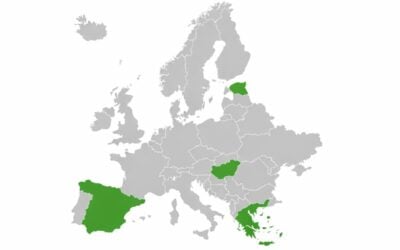
European lithium battery industry trade body RECHARGE has warned that some parts of the EU’s Draft Report on Batteries and Waste Batteries may stifle the industry and not deliver on objectives, ahead of today’s vote.
The European Parliament Committee on the Environment, Public Health and Food Safety (ENVI) will today (Thursday 10 February) vote on the report which provides clearer definitions about which batteries can be admitted to market and introduces minimum requirements for the content of recycled material in batteries.
Some Energy-storage.news sources fear the measures will make Europe’s comparatively nascent battery industry less competitive than established Asian industry producers, who are larger but also have experience of local battery recycling regulations.
RECHARGE, which overall welcomes the proposals in principle, reiterated these fears yesterday in a statement: “European battery manufacturers will introduce many innovations over the coming years and therefore caution needs to be applied in a fast-paced environment not to overregulate product design and to not over-narrowly define product performance.”
Try Premium for just $1
- Full premium access for the first month at only $1
- Converts to an annual rate after 30 days unless cancelled
- Cancel anytime during the trial period
Premium Benefits
- Expert industry analysis and interviews
- Digital access to PV Tech Power journal
- Exclusive event discounts
Or get the full Premium subscription right away
Or continue reading this article for free
“Such measures could hamper the ability of the industry to innovate and to meet new and future more complex customer demands.”
Claude Chanson, RECHARGE General Manager, added that the measures needed to be properly implemented and controlled at the member state level by avoiding being too broad in scope.
“This would not only jeopardise the competitiveness of the still nascent European batteries industry, but would also open the door for green-washing and for non-compliant products to enter into the EU,” he added.
The industry could create about 800,000 jobs by 2023 at the current pace, according to RECHARGE. RECHARGE has even suggested that some recent proposals may put safety controls at risk.
The main worry for industry participants is a diminishment of the EU market’s attractiveness leading to supply constraints at a time of rising demand for lithium-ion batteries, especially from EVs, and the ensuing higher prices.
Lithium-ion battery costs have increased in the last six months for the first time in a decade due to supply chain constraints for the underlying materials.
Following adoption in the Committee, the draft report will be submitted for vote in Plenary during the February Session.
See more information about the ENVI Committee vote and the legislation including proposed amendments here.
See RECHARGE’s full statement here.





